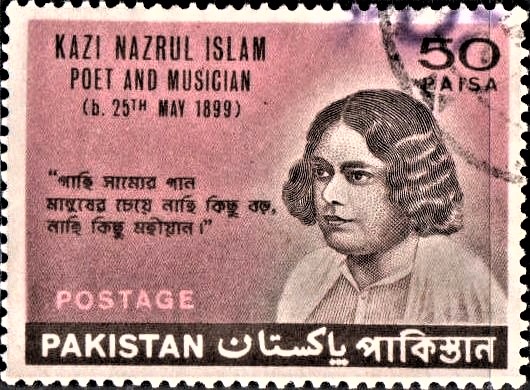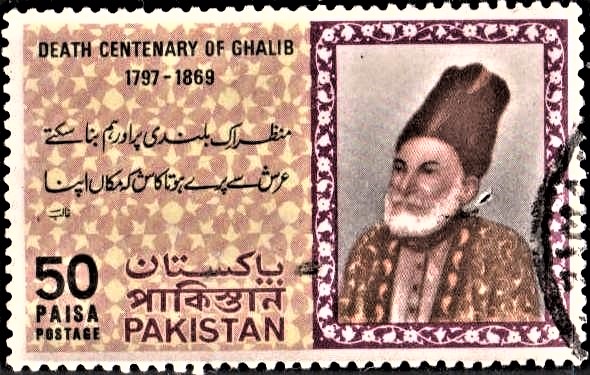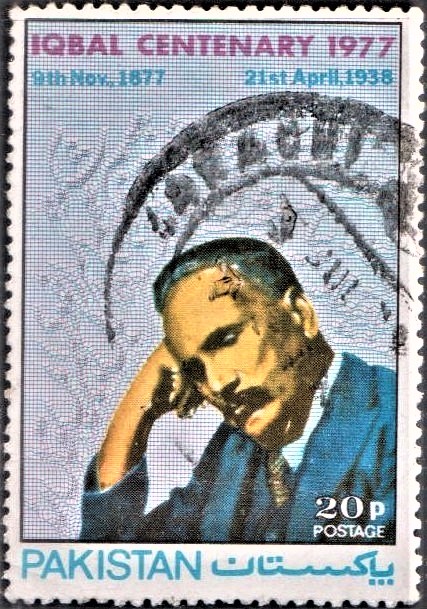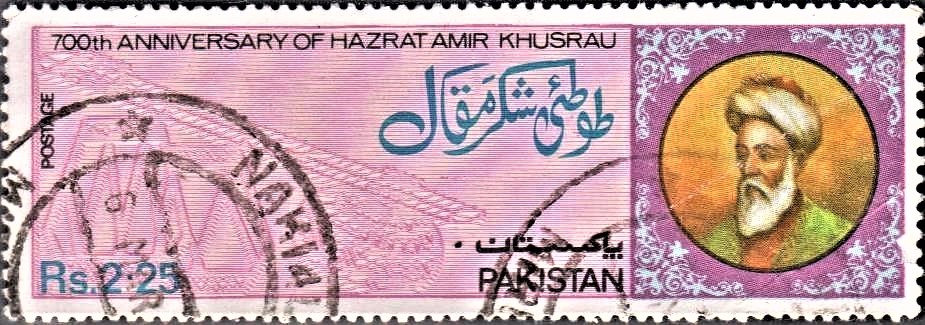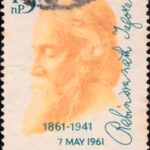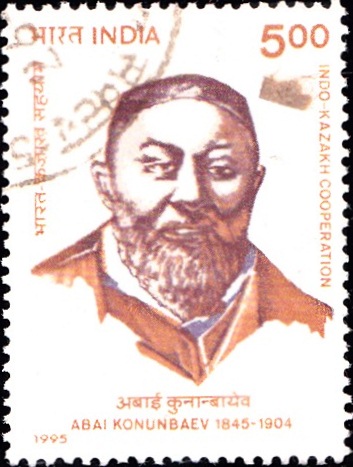
Indo-Kazakh Cooperation : Abai Konunbaev
A commemorative postage stamp on Abay Qunanbaiuly, a Kazakh poet, composer and philosopher :

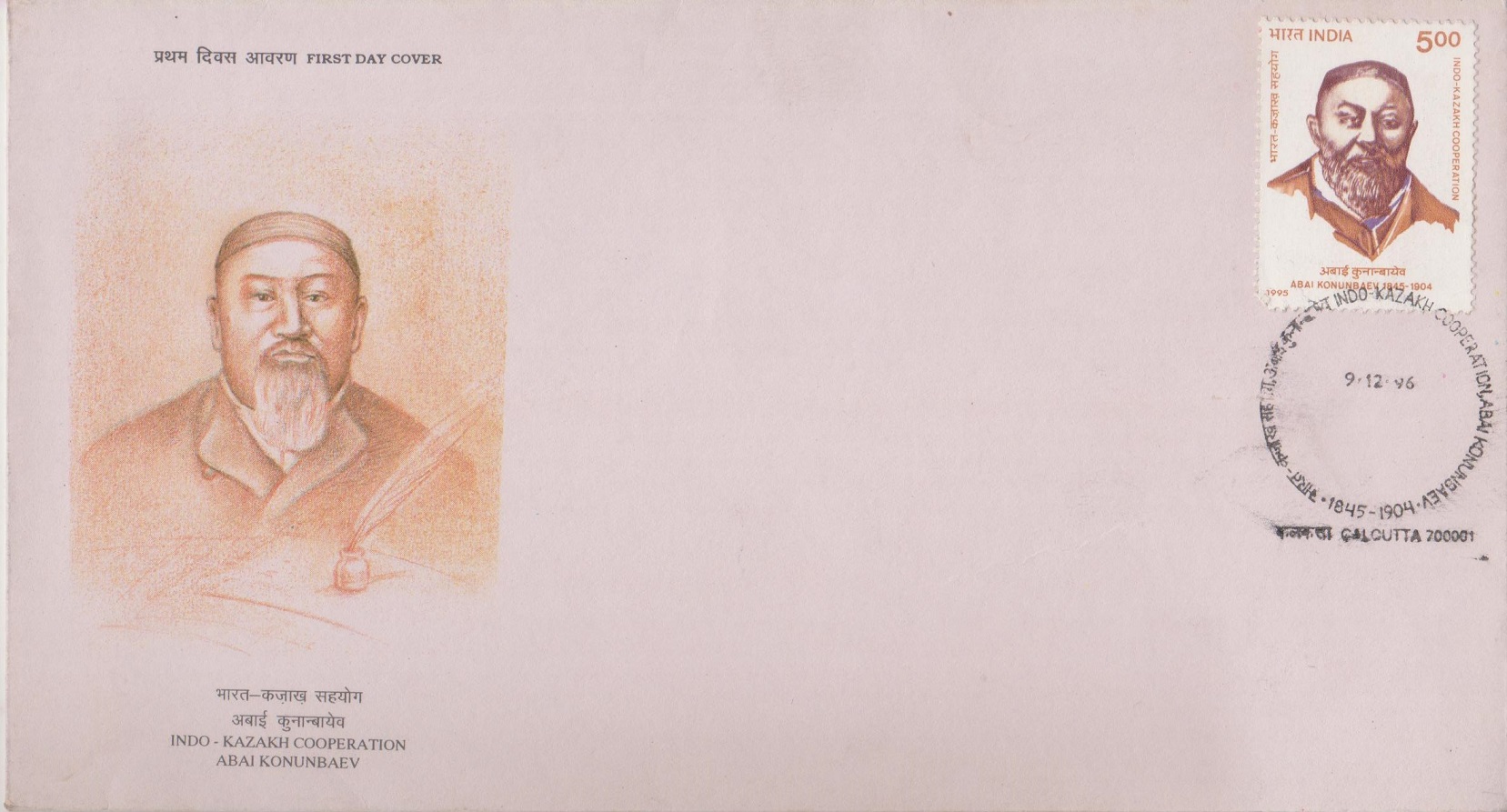 Issued by India
Issued by India
Issued on Dec 9, 1996
Courtesy : Ministry of External Affairs, Government of India.
FDC : Shri Sankha Samantha
Cancellation : Smt. Alka Sharma
Type : Stamp, Postal Used
Colour : Two Colour
Denomination : 500 Paise
Overall size : 3.91 x 2.90 cms.
Printing size : 3.55 x 2.54 cms.
Perforation : 13 x 13
Paper : Imported un w/m Adhesive Gravure Coated Stamp Paper in Sheets 53.5 x 50.8 cms.
Number of stamps Printed : One Million
Number per issue sheet : 35
Printing Process : Photogravure
Printer : India Security Press
Name : Abay (Ibrahim) Qunanbayuli
Born on Aug 10, 1845 at Karauyl, Abay District, East Kazakhstan Province, Kazakhstan
Died on Jul 6, 1904 at Karauyl, Abay District, East Kazakhstan Province, Kazakhstan
About :
- Abai Konunbaev, the great Kazakh poet, thinker and humanist was born in 1845 in the Semipalatinsk oblast of Kazakhstan. Although his real name was Ibrahim, his mother called him “Abai” (which means thoughtful).
- Abai had his early education at home by a Mullah and then in a Madrasah. Influenced by stories, folk tales and historical songs narrated to him during his childhood, Abai started composing poems at the age of twelve. However his schooling was curtailed by his father Konunbaev who wanted him to look after administration and to take over as the future leader of his clan.
- Much of Abai‘s earlier works have not survived because much of it was not written but recited. His search for knowledge and his yearning for beauty and a better life for his people drew him close to the mysteries of oriental and classical Russian literature. Having an excellent knowledge and understanding of Kazakh folk music Abai composed several melodies for his own poems.
- Abai‘s writings were directed against backwardness, corruption and prejudices which not only made him popular but earned him a few enemies also. An outspoken and undaunted fighter against the evils of administration, clan elders and all other authorities, Abai earned the reputation of a sage to whom people could turn for counsel.
- Abai‘s legacy of literature in Kazakh is contained in two thick volumes which includes his verses, poems, talks with his colleagues (exhortations) and numerous translations. Abai was influenced by Tajik, Azerbaijan and Uzbek classical poetry. He also drew from Western cultures which enriched his inner world with new ideals besides enlarging his range of expression. Abai also translated the works of noted authors including Pushkin, Lermentov and Krolov. Some of his famous poems are “Summer“, “Winter“, “Old age is here – sad thoughts“, “O!, My Luckless Kazakhs“, “My unfortunate kins“ etc.
- Abai died in 1904. The year 1995 was being celebrated as the 150th year of his birth anniversary by Kazakhstan and UNESCO. Abai is the greatest luminary of Kazakh literature and poetry who strove to pave the way for a more enlightened life for his countrymen, and hence, has the status of a father figure among the Kazakhs.


